
Early Middle Ages
Unit 1
Explanation of the
Fall of the Roman Empire
List the 8 reasons
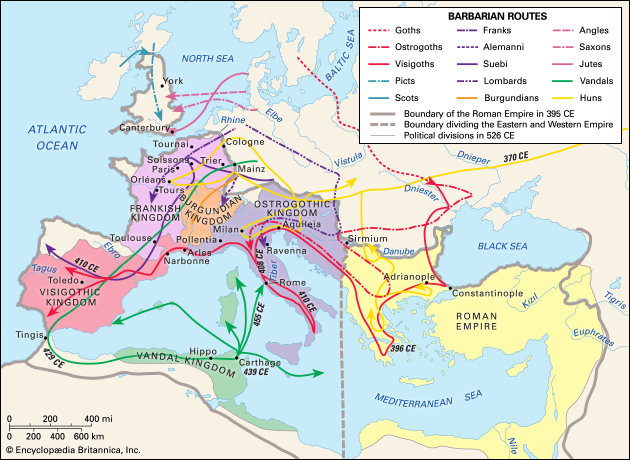
In 3rd and 4th Century AD
Roman Empire was invaded
by HUNS and GERMANIC Tribes
Huns
Asian steppe
nomadic animal herders
Germanic tribes
North and East Europe
farmers : animals and agriculture
Barbarians
Roman called the these people
Barbarians
= foreign (extrañeros) and savage
Economic exchanges
Joined the Roman army
Barbarians
Friends and Enemies of the Romans
Violent attacks against Roman cities
Settled in Roman territory peacefully

Emperor CONSTANTINE
Moved the capital from Rome to Constantinople
Emperor THEODOSIUS
Divided the Roman Empire
Western and Eastern Empire

The Byzantine Empire
in the Eastern Roman Empire
and lasted 1000 years.
Invasions Western Roman Empire

Atilla the Hun attacked the Gemanic tribes
and
the Roman Empire
Germanic tribes escaped from the Huns attacks and
invaded the Western Roman Empire
looking for a safe place

Germanic tribes
settled in different parts
of the Roman Empire
ODOACER a Germanic Chieftain
deposed the
last western Roman Emperor
ROMULUS AUGUSTULUS


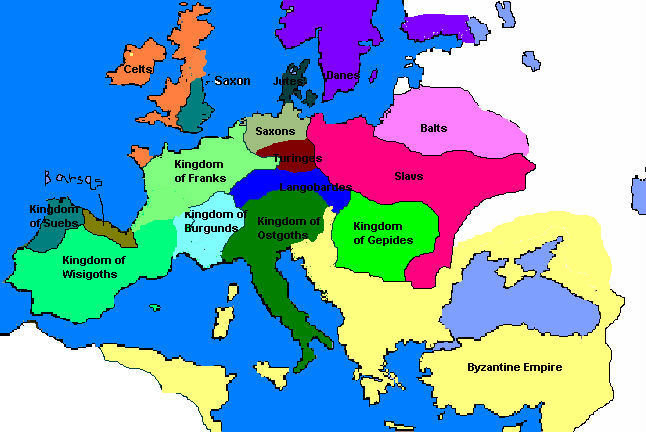
Germanic tribes formed small kingdoms
the Western Roman Empire
Angles and Saxons
Germanic and Roman populations
LANGUAGE
New languages emerged
LAW
Combination of Roman law with Germanic customs
Religion
Pagan Germanic Tribes
converted to Arianism then Christianity
Germanic influence
German Dutch English
Latin influence
Spanish French Italian
Visigoths and Romans
ALLIANCES
CONFLICTS
Visigoths raided
Roman cities
Romans gave
Visigoths
land and food
Visigoths
gave Roman soldiers
for Roman armies
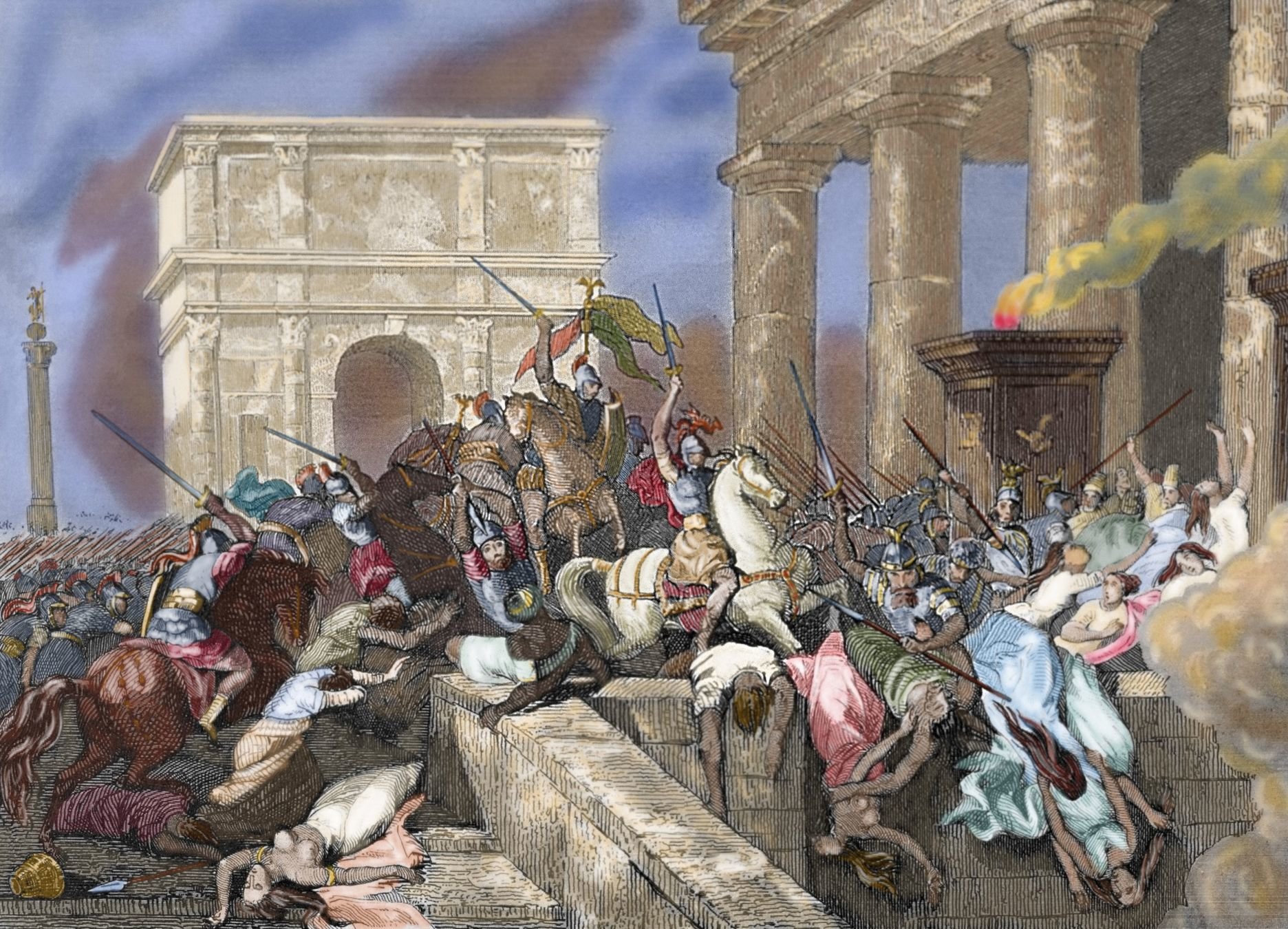
SACK OF ROME
410AD
Visigoths invaded Rome
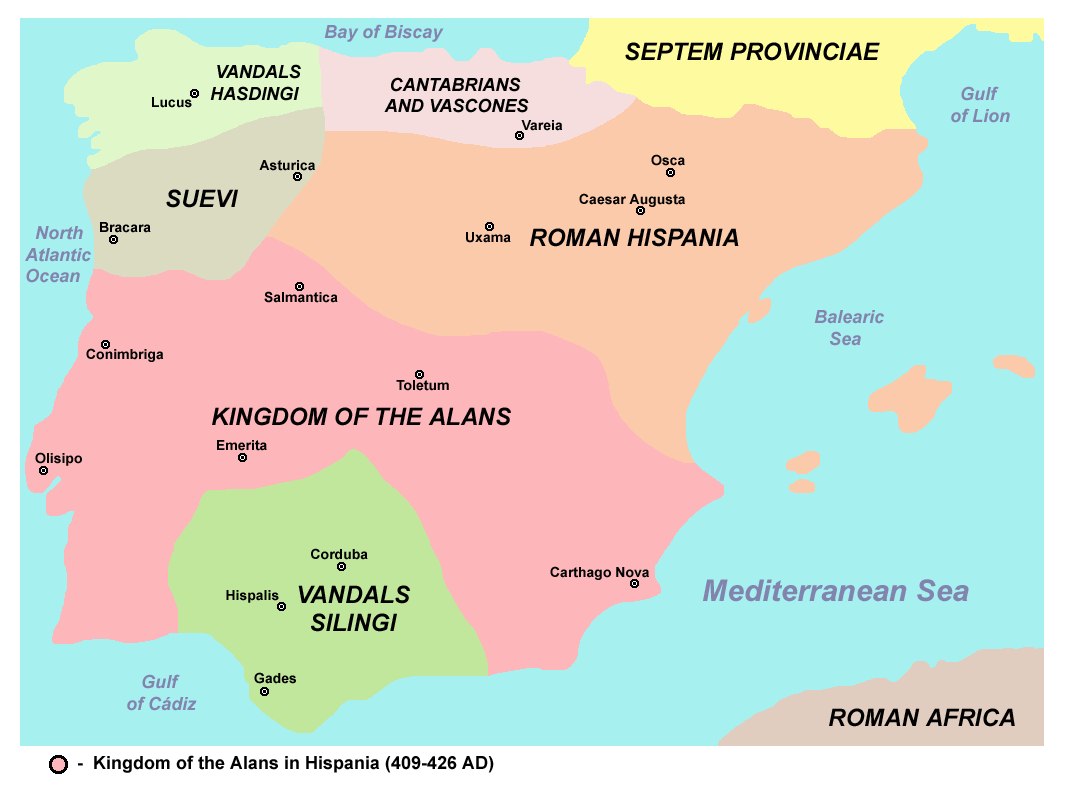
In 415
Roman Emperor
asked Visigoths
to expel the SUEVIs, VANDALs and ALANs
from the Iberian Peninsula

Roman Emperor Honorius
gave the VISIGOTHS
Gaul in south-west France and
most of the Iberian Peninsula
Visigoths acted as representatives
for the Romans
Capital - TOULOUSE

In 507AD
FRANKS wanted access to the Mediterranean Sea
Pushed
the VISIGOTHS
out of Gaul
Visigoths moved the capital to TOLEDO
Toledo
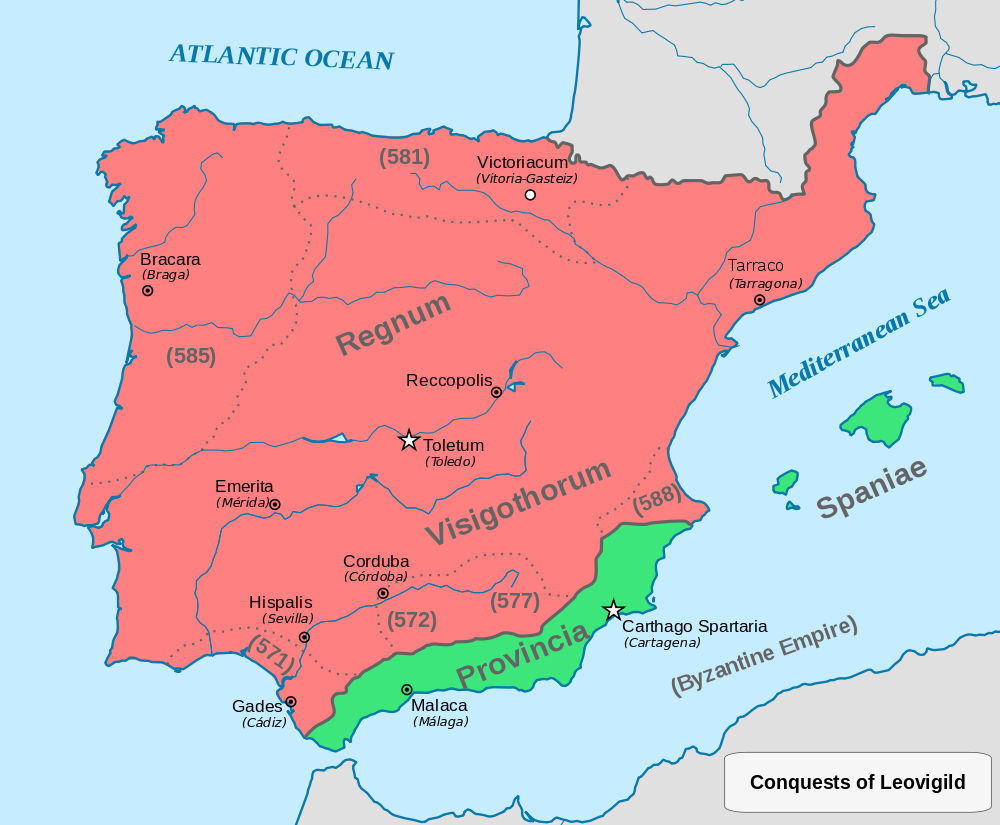
Visigoths Glorious Period 568AD to 672AD
His son RECCARED made the kingdom CHRISTIAN
King Recceswinth
unified the laws
KING LEOVIGILD expanded the Visigothic Kingdom

However,
in 7th Century
Visigothic kingdom divided and internal fighting began
This weakened the Visigoth Kingdoms,
so....
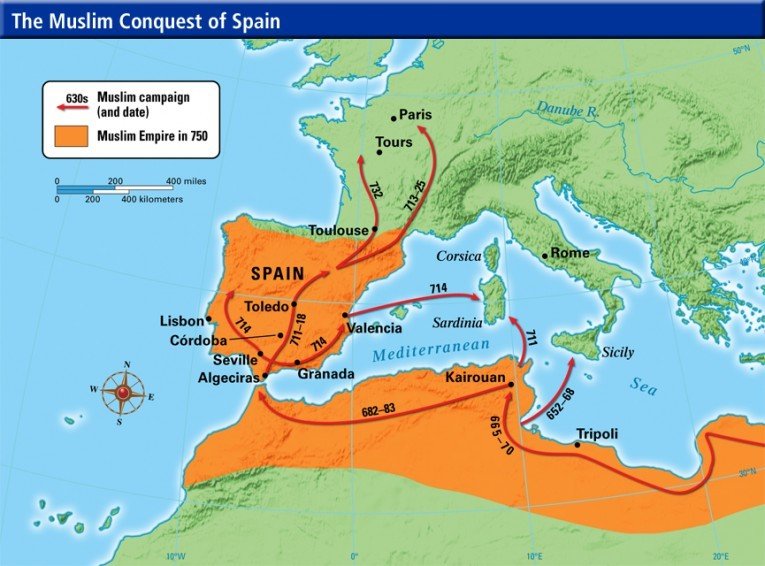
In 711AD
The Islamic Empire invaded and conquered the Iberian Peninsula.
Text
The Visigothic kingdoms
disappeared.
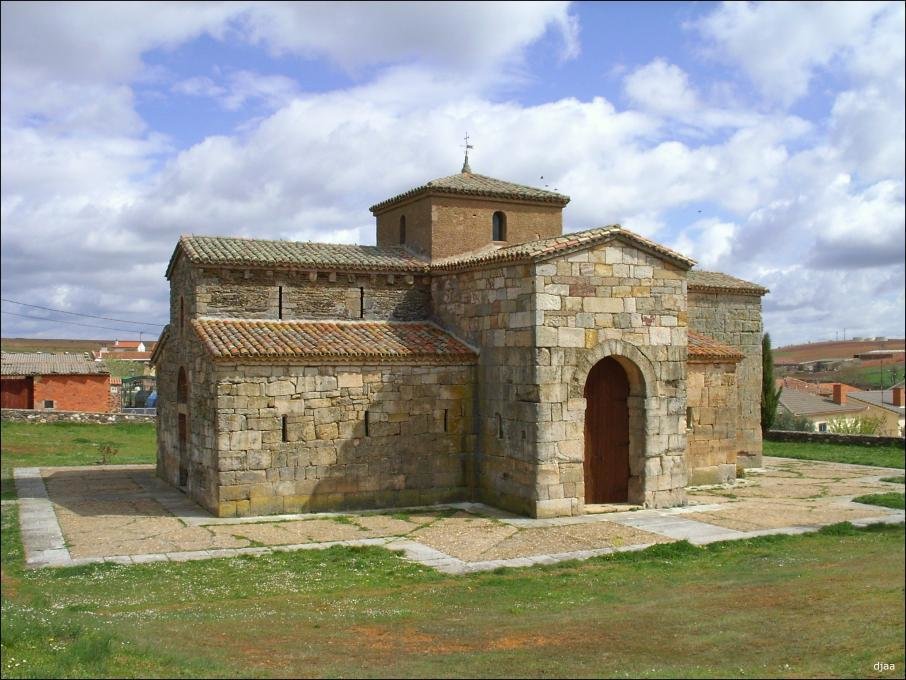
San Pedro de la Nave, Campillo, Zamora
One of the most important
Visigothic Churchs
San Pedro de la Nave, Campillo, Zamora

The Byzantine Empire
395 - 1453AD
The Eastern Roman Empire
/ Byzantine Empire
Capital - Constantinople
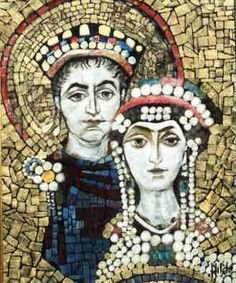
Justinian and,
his wife,Theodora
527-565CE
The Byzantine Empire
Ruled the government, army and religious leaders together.
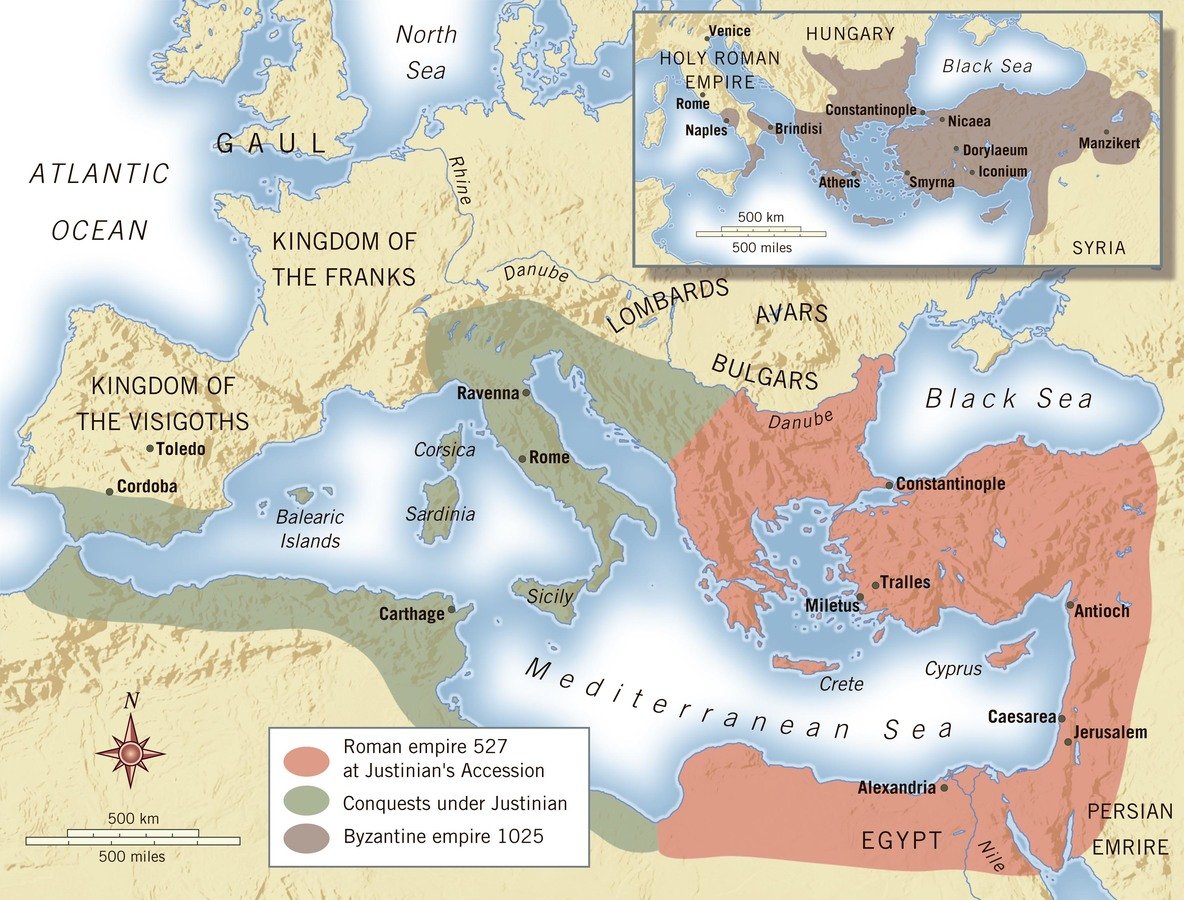
He invaded and conquered
ITALY,
IBERIAN PENINSULA
and NORTH AFRICAN COAST
JUSTINIAN
wanted to rebuild the Roman Empire
so...
Dominated the coast of Mediterraneean Sea
and
controlled trade between
East and West
Created gold coins
to make trading easier
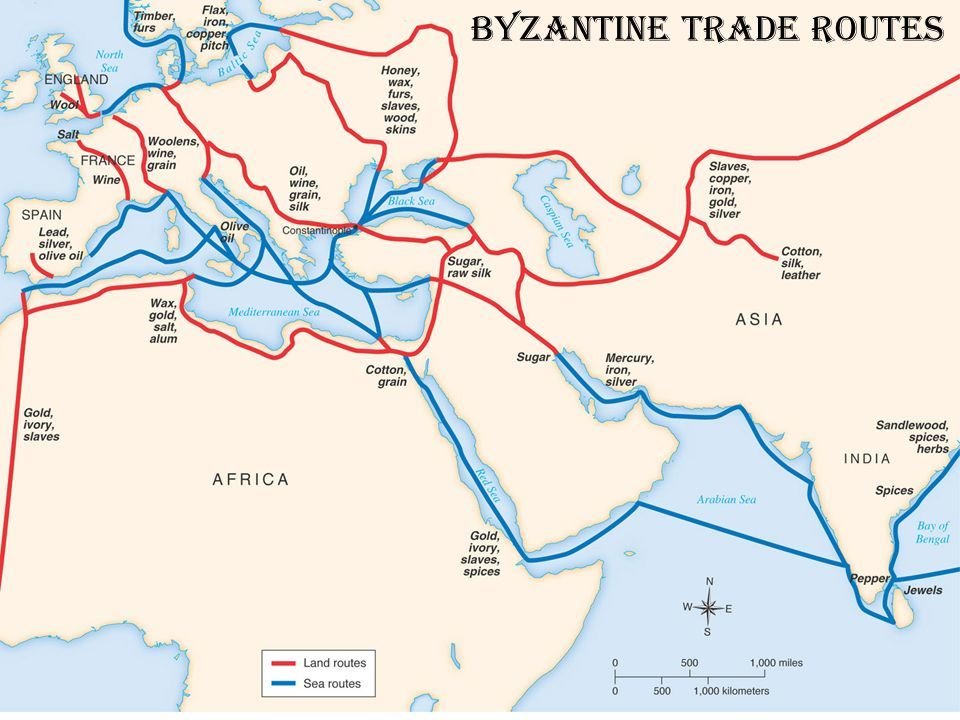
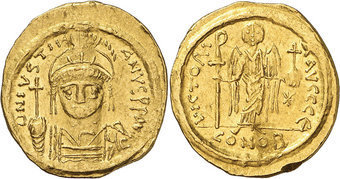
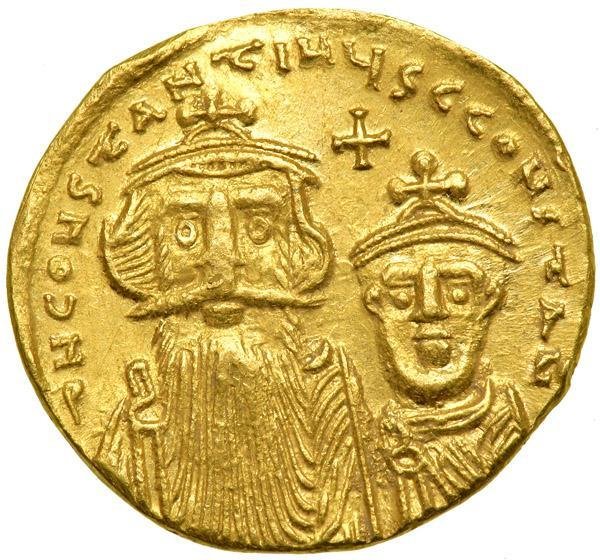
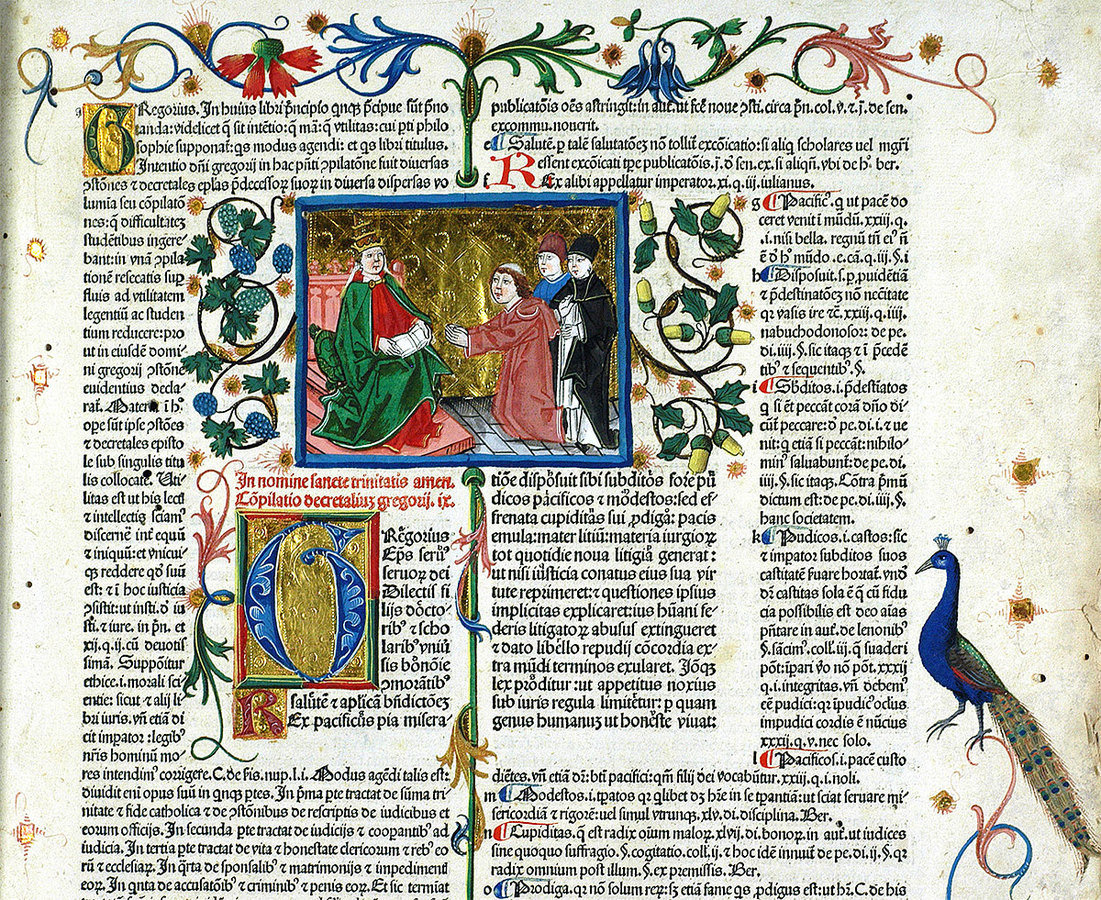
Justinian recuperated and modernized Roman Laws
The Justinian Code
This document
was called
"INNOCENT UNTIL
PROVEN GUILTY"
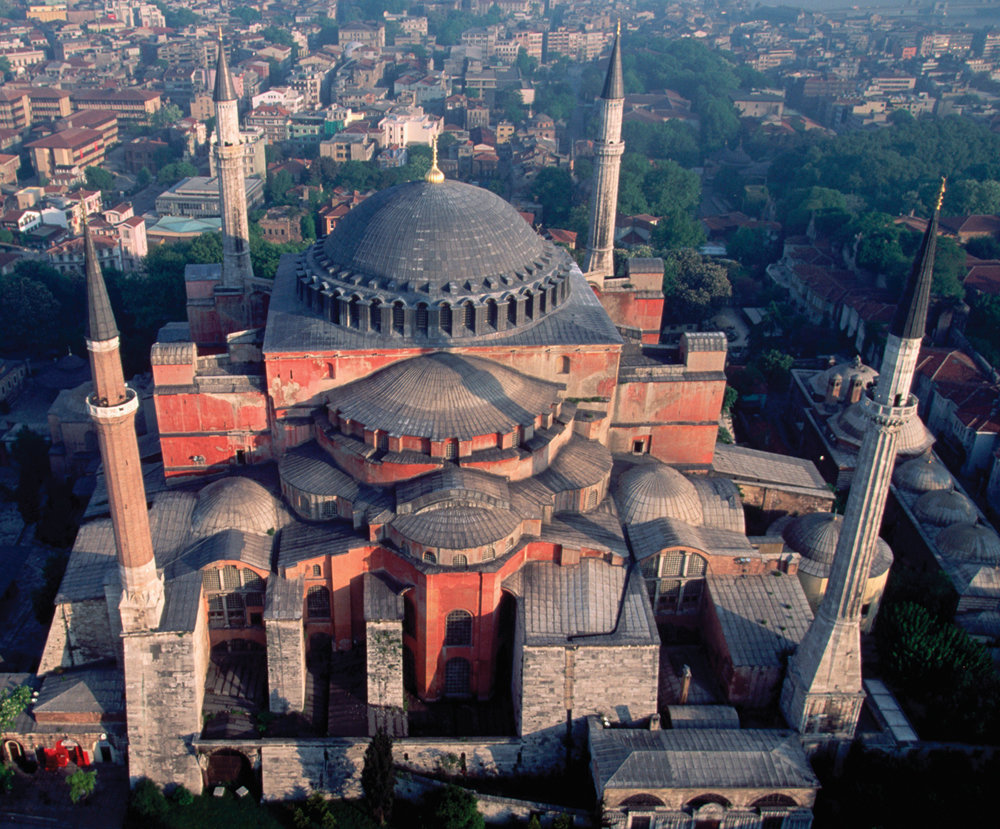
Hagia Sophia
video???
Hagia Sofia
The most important church in the Byzantine Empire
Built in 5 years (532-537CE)
during Justinian reign
Why did the church change
into a mosque (mezquita) ?
What happened to the mosaics?
What changed when the Hagia Sofia
became a mosque, and why?
watch the video and
answer the questions
Fall of the Byzantine Empire

After Justinian death in 565CE
the Byzantine Empire began to lose territories
Difficult to defend and protect borders
6th Century
Lombards
conquered Italian Peninsula
7th Century
Lost southern
Iberian Peninsula
to the Visigoths
7th and 8th Century
Islamic Empire
began to conquer
territories
around the eastern coasts
of Mediterranean Sea
Religion changed
EAST -WEST SCHISM
East
CATHOLIC ORTHODOX CHURCH
they didn't recognize the POPE's authority
Leader - Basileus/Emperor
West
ROMAN CATHOLIC CHURCH
Leader - Pope
in 1054
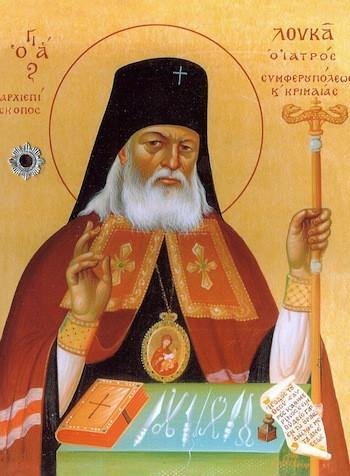
Roman Catholic church divided
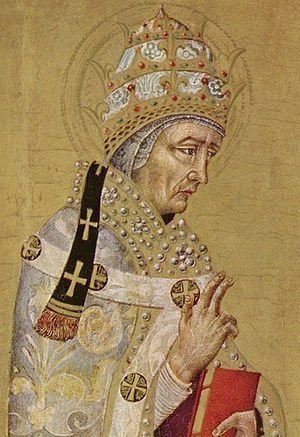
Culture and art changed
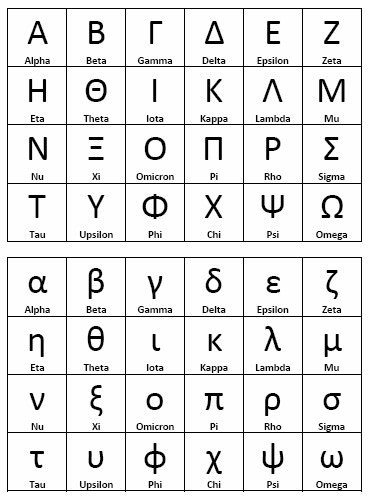
Greek Alphabet
Greek replaced Latin

Latin Alphabet
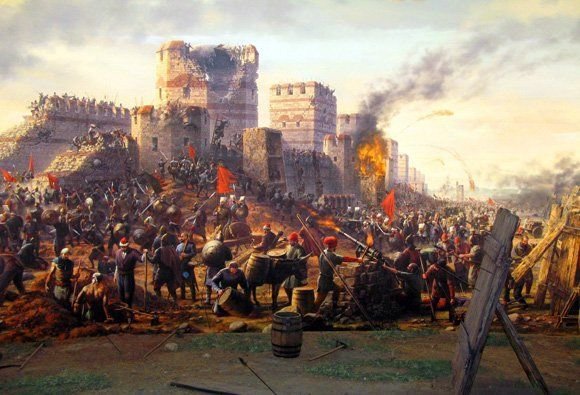
the OTTOMAN TURKS conquered CONSTANTINOPLE
ending the BYZANTINE EMPIRE
In 1453, almost 1000 years
after its beginning...
Fall of the Byzantine Empire
Islamic Empire

- Each tribe was polytheistic
- Constantly fighting
- Shared MECCA as their holy land
Started in Arabian Peninsula
Arabs lived in tribes
Rich merchant from Mecca
Knew about JUDAISM
and CHRISTIANITY
Spoke about a
NEW monotheistic religion -
ISLAM
Proclaimed himself
PROPHET of ALLAH
( God in Islamic)
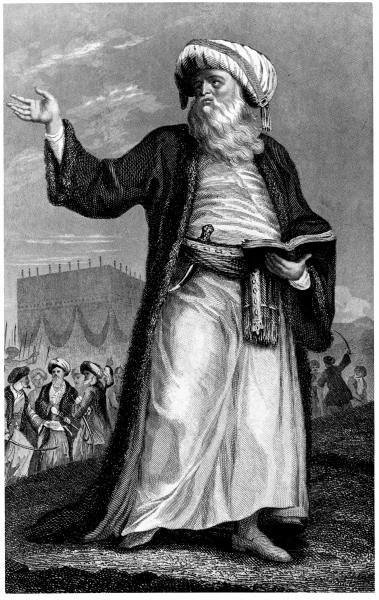
Who was MUHAMMAD???
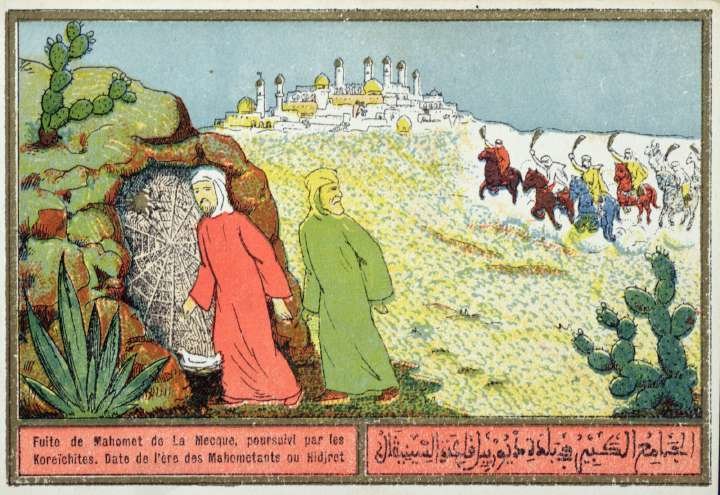
Rich people of Mecca were against his teachings
Muhammad escaped to MEDINA
In 622AD
WHY?????
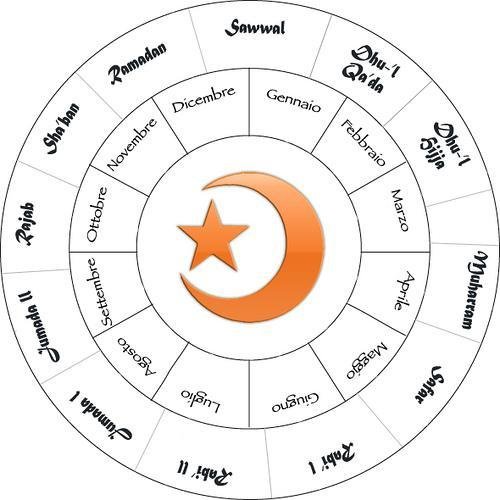
622AD is the HEGIRA
the first year
of the Muslim calendar
In Medina, Muhammad...
created an army, returned to MECCA
and conquered it in 628CE
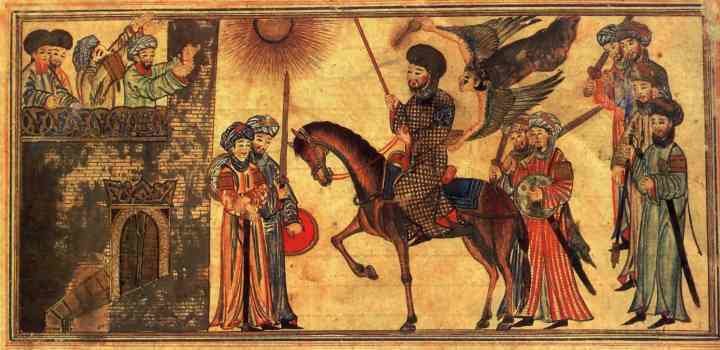
He unified different tribes under one religion - ISLAM
Islamic Empire
Islamic religion spread
throughout
the ARABIAN PENINSULA
Unified polytheistic tribes
under one religion...
ISLAM
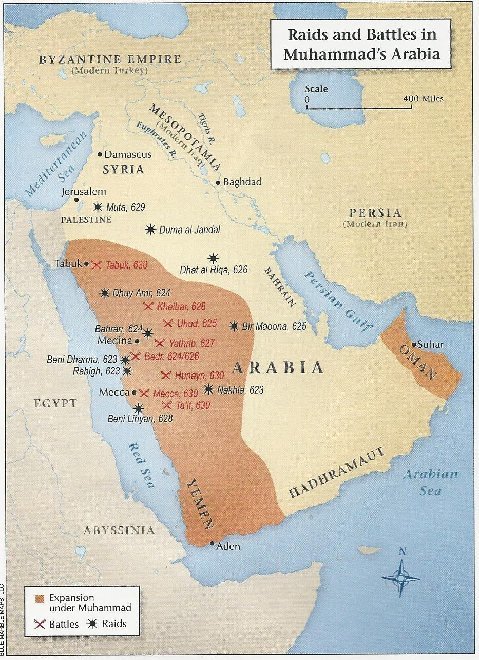
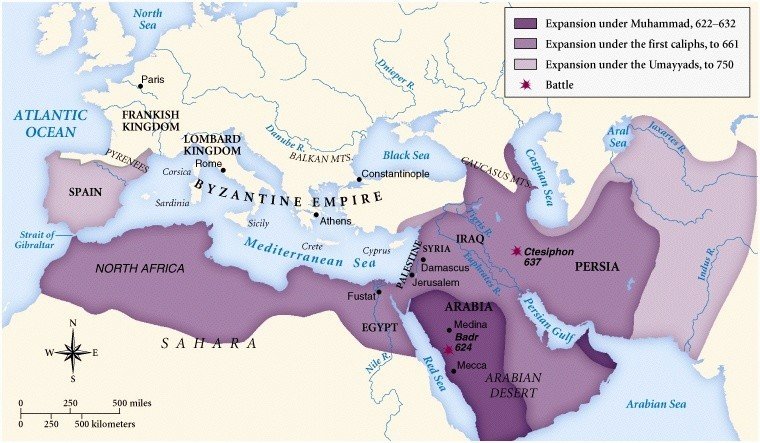
ISLAM the Empire
Koran
Holy book of Islam
- Mohammad is the the prophet of the only god - ALLAH
- Pray five times a day
- Pilgrimmage to MECCA once
- Fast during RAMADAN
- Help the poor
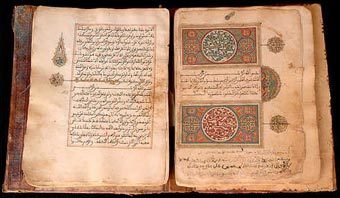
FIVE OBLIGATIONS

ISLAM the Empire
ORTHODOX Caliphate (632-661) capital MEDINA
conquered Syria, Palestine, Persia, Egypt. Fought against the BYZANTINES

ISLAM the Empire
UMAYYAD Caliphate (661-750) capital DAMASCUS
Expanded through Northern Africa, conquered the Iberian Peninsula

ISLAM the Empire
ABBASID Dynasty (750-1258) capital BAGHDAD
Internal fighting weaken the Empire
13th Century the TURKS
became the most powerful in the region
Islamic Society
Created libraries in CORDOBA,
CAIRO and BAGHDAD
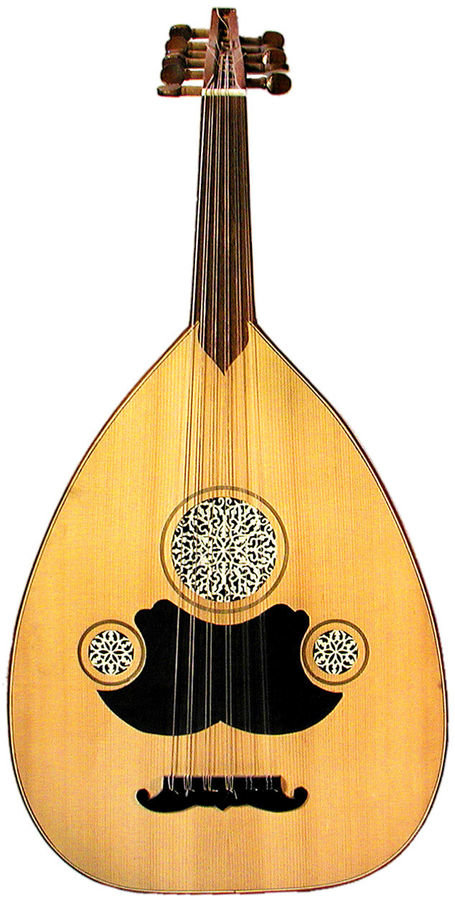
Cultivated music and poetry
Islamic Society
GREAT MERCHANTS
TRADED...
gun powder, the compass and the astrolabe from India and China to Europe
Cloth and spices to Asia
Ivory, gold and slaves from Africa
Metals from Europe
Islamic Society
GREAT SCIENTIST, MATHEMATICIANS and INVENTORS
Introduced the ZERO, Arabic numbers and algebra
Developed advanced SURGERY and ANESTHESIA techniques
Invented the WATERWHEEL, new IRRIGATION TECHNIQUES and new CROPS - rice, oranges and saffron
Copy of UNIT 1 Early Middle Ages
By txecor
Copy of UNIT 1 Early Middle Ages
- 1,187


